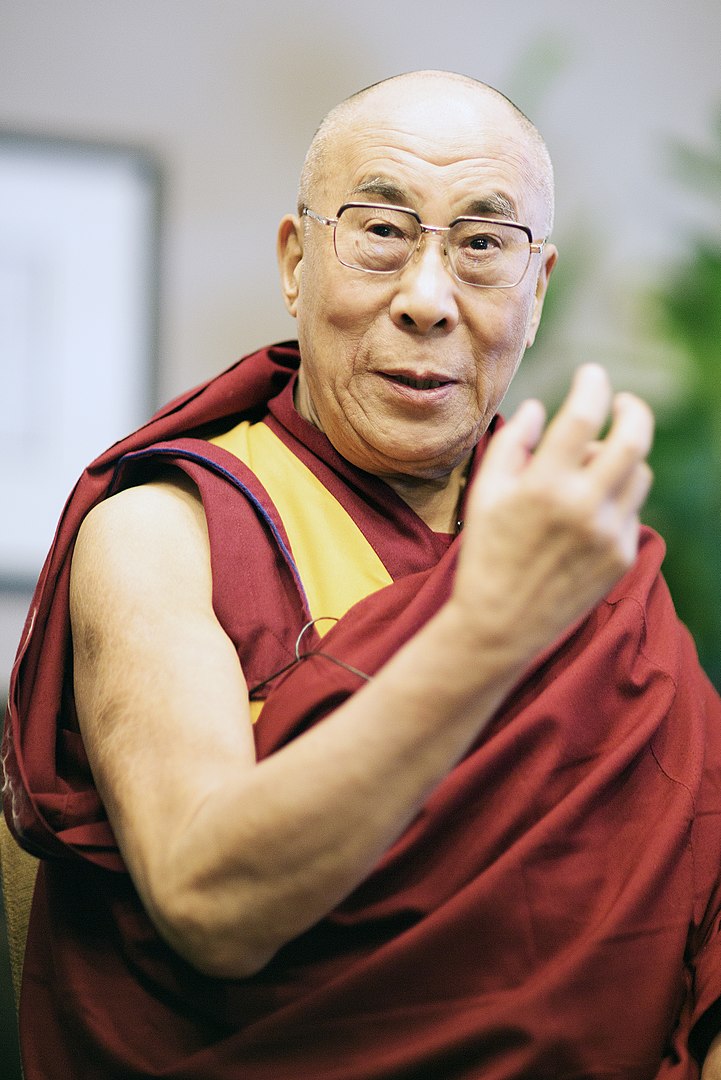The first time I realized I could watch my thoughts and choose how to react to them was when I was 23, while reading the Dalai Lama’s The Art of Happiness.
I can’t remember the exact part of the book or what he said, but I can still remember how I felt when I read the words, when I understood what he was saying. I can still feel the surprise, the underlying hope and potential I felt when reading it.
Prior to that, I honestly had no idea that was possible. I just automatically reacted to my triggers and the things that moved through me, and I was so tired of doing that because I always felt bad when I reacted in ways I didn’t like or feel proud of.
That book, that period, changed my life, and I am so different from who I was before it. My view, my outlook, how I approach life and myself shifted. Worlds opened up for me, a path I never could have imagined.
It’s a beautiful journey that is still unfolding.
It wasn’t just that book—so much flooded into my life at the time: mindfulness, yoga, meditation (although I stopped meditating after a while and eventually came back to it a couple of years later), so many eye-opening books and articles. So many new interests came to me.
To me, it feels like there was life before that summer, and then there was life after it.
And everything about it led me to where I am now.
I love reading words from the Dalai Lama because they feel so soothing.
Here are 15 quotes from the Dalai Lama that will break open your heart (and mind):
1. “Every day, think as you wake up, today I am fortunate to be alive, I have a precious human life, I am not going to waste it. I am going to use all my energies to develop myself, to expand my heart out to others; to achieve enlightenment for the benefit of all beings. I am going to have kind thoughts towards others, I am not going to get angry or think badly about others. I am going to benefit others as much as I can.”
2. “Our prime purpose in this life is to help others. And if you can’t help them, at least don’t hurt them.”
3. “If a problem is fixable, if a situation is such that you can do something about it, then there is no need to worry. If it’s not fixable, then there is no help in worrying. There is no benefit in worrying whatsoever.”
4. “Be kind whenever possible. It is always possible.”
5. “People take different roads seeking fulfillment and happiness. Just because they’re not on your road doesn’t mean they’ve gotten lost.”
6. “When we meet real tragedy in life, we can react in two ways—either by losing hope and falling into self-destructive habits, or by using the challenge to find our inner strength.”
7. “We can never obtain peace in the outer world until we make peace with ourselves.”
8. “If you can cultivate the right attitude, your enemies are your best spiritual teachers because their presence provides you with the opportunity to enhance and develop tolerance, patience and understanding.”
9. “A disciplined mind leads to happiness, and an undisciplined mind leads to suffering.”
10. “Let us try to recognize the precious nature of each day.”
11. “True change is within; leave the outside as it is.”
12. “Although you may not always be able to avoid difficult situations, you can modify the extent to which you can suffer by how you choose to respond to the situation.”
13. “Inner peace is the key: if you have inner peace, the external problems do not affect your deep sense of peace and tranquility. In that state of mind you can deal with situations with calmness and reason, while keeping your inner happiness. That is very important. Without this inner peace, no matter how comfortable your life is materially, you may still be worried, disturbed or unhappy because of circumstances.”
14. “Whether our action is wholesome or unwholesome depends on whether that action or deed arises from a disciplined or undisciplined state of mind. It is felt that a disciplined mind leads to happiness and an undisciplined mind leads to suffering, and in fact it is said that bringing about discipline within one’s mind is the essence of the Buddha’s teaching.”
15. “Whether one is rich or poor, educated or illiterate, religious or nonbelieving, man or woman, black, white, or brown, we are all the same. Physically, emotionally, and mentally, we are all equal. We all share basic needs for food, shelter, safety, and love. We all aspire to happiness and we all shun suffering. Each of us has hopes, worries, fears, and dreams. Each of us wants the best for our family and loved ones. We all experience pain when we suffer loss and joy when we achieve what we seek. On this fundamental level, religion, ethnicity, culture, and language make no difference.”
~
 Share on bsky
Share on bsky






Read 9 comments and reply